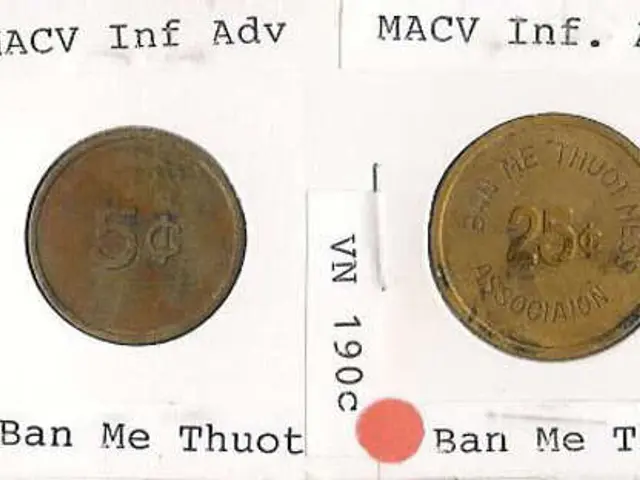falling below the specified inflation rate by the Bank of England for the first time in more than 3 years.
UK Interest Rates Set for Gradual Decrease, According to Latest Inflation Report
In a development that could bring relief to savers and borrowers alike, the UK's core inflation has slowed down, offering a potential opportunity for further interest rate cuts.
According to the latest Consumer Prices Index (CPI) report, core inflation, which strips out volatile categories like energy, food, alcohol, and tobacco, decreased from 3.6% in August to 3.2% in September. This marks the lowest rate in over three years, with the inflation rate falling to 1.7% in September, a significant drop from the peak of 11.1% recorded in October 2021.
The decrease in core inflation has wide-ranging implications for savers, as markets are gearing up for a probable rate cut in November. A one or two-year fixed-rate bond could prove attractive for savers before the expected rate cut. For a retiree on the full new state pension, this means a £473 increase in annual income, according to the latest CPI report.
However, the decrease in inflation is not uniform across all sectors. The cost of milk, cheese, eggs, mineral waters, soft drinks, juices, and fruit all went up in September, contributing to an upward contribution to the CPI. Services inflation, on the other hand, plunged from 5.6% to 4.9% in September. Air fares fell by 34.8% in September, providing some relief to travellers.
The slowdown in GDP growth and a gradual loosening of the labour market (with rising unemployment and slowing salary growth) support the view that further rate cuts could be warranted to ease monetary policy. The Bank of England’s Monetary Policy Committee (MPC) reduced the base rate to 4% on 6 August 2025, noting that inflation is forecast to peak slightly above current levels at 4% in September before gradually falling toward its 2% target.
Most analysts expect at least two more cuts this year, potentially bringing the rate down to around 3.75% by the end of 2025, depending heavily on labour market conditions and inflation trends. The pace and extent of further rate cuts will depend significantly on incoming inflation data and labour market developments, meaning future monetary policy is not on a pre-set path but will be responsive to economic evidence.
Governor Andrew Bailey recently suggested that UK policymakers could become more aggressive in their approach if inflation continues to cool. The next Monetary Policy Committee (MPC) meeting is scheduled for eight days after the Budget on 30 October. Chancellor Rachel Reeves may change government borrowing rules to facilitate more investment in the UK economy, which could further influence the monetary policy decisions.
It is important to regularly review the rate on any easy-access accounts to ensure they are still competitive. The latest inflation figure is welcomed by those hoping for a rate cut at the Bank of England's next meeting on 7 November. Petrol and diesel prices also fell by 5.5p and 6p per litre respectively in September, offering some relief to consumers.
[1] Bank of England (2025). Inflation Report. Available at: https://www.bankofengland.co.uk/-/media/boe/files/inflation-report/2025/august/inflation-report-august-2025.pdf [2] Goldman Sachs Research (2025). UK Economic Outlook. Available at: https://www.goldmansachs.com/insights/pages/uk-economic-outlook.html [3] Office for National Statistics (2025). UK GDP Growth Rate. Available at: https://www.ons.gov.uk/economy/grossdomesticproductgdp/timeseries/ybha/pjhg [4] Financial Times (2025). Bank of England Base Rate Forecast. Available at: https://www.ft.com/content/810b44d9-c67b-41f5-86c5-4c62584d1c1a [5] Reuters (2025). Goldman Sachs sees BoE cutting rates to 3% by mid-2026. Available at: https://www.reuters.com/business/uk/goldman-sachs-sees-boe-cutting-rates-3-mid-2026-2025-08-16/
To secure optimal returns for their personal finance, individuals may consider investing in long-term savings vehicles like pensions and fixed-rate bonds while interest rates remain relatively high. With the decreasing interest rates expected due to the Bank of England's gradual decrease, it's crucial for retirees to have a comprehensive understanding of the impact on their income from pensions and other retirement plans. As the Bank of England's Monetary Policy Committee (MPC) prepares for its next meeting, savers and borrowers alike await its decision that could shape the landscape of personal finance and investments across the UK.




